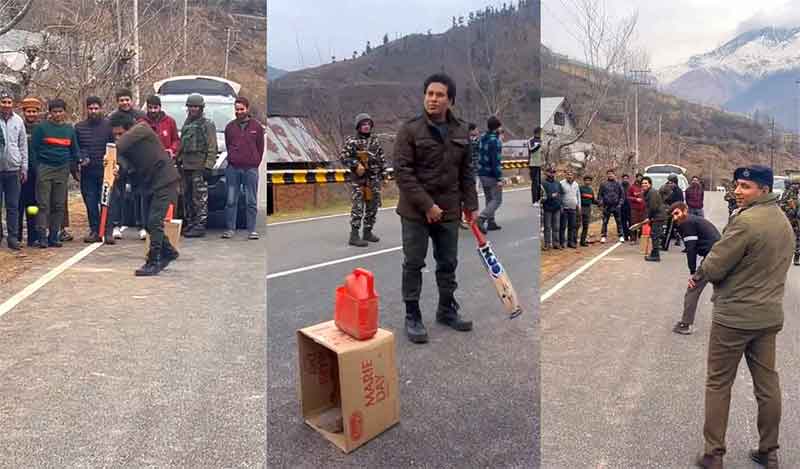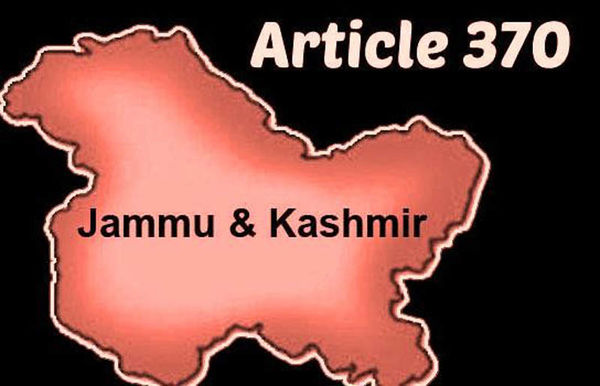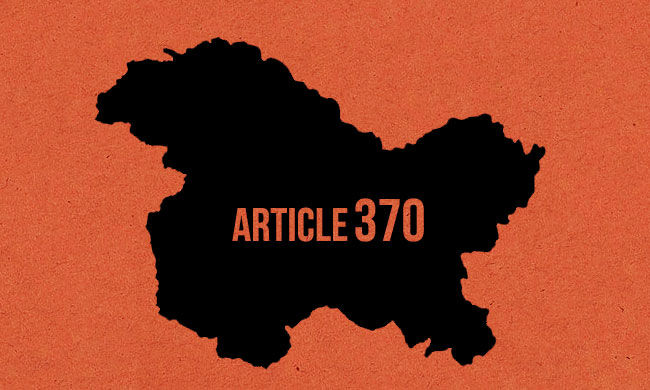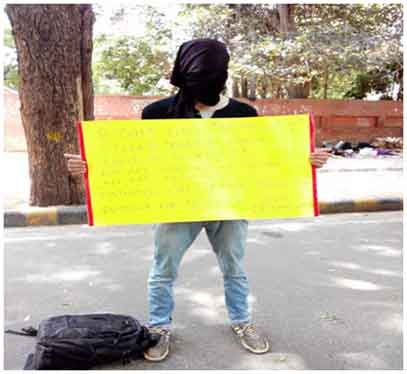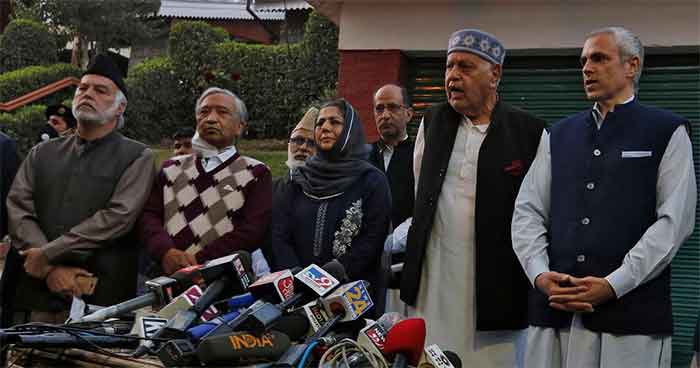
Whenever and wherever there is a discourse on the disputed status of Jammu and Kashmir, everyone attempts to present this dispute with their spin.
India and Pakistan narrate this conflict following their national policies, but how unfortunate that some Kashmiris who, far from the truth, repeat cliché, blame each other or the whole Kashmiri leadership for the current turmoil. Every leader belonging to the mainstream or a freedom camp is blamed and cursed by one and all.
We must ask if Kashmiris ever have been given a chance to state their position or narrate their story. If given this opportunity, when and by whom?
Kashmiris have been forced to compromise with the situation at every turn, at every place, and every forum. The constant pressure tactics have cost Kashmir many luminaries and political personalities.
In 1947, when India got signed an ‘Instrument of accession’ with the then Dogra ruler, Maharaja Hari Singh who was later deported from his ruling empire, every single leader, including Sheikh Abdullah, tried hard to compromise with India. Each time, it was only India that treated leaders with extreme dishonesty and deception.
It can be true that the Kashmiri mainstream leadership is partly responsible for the current crisis but isn’t it also true to contemplate the circumstances they were being caught up with instead of blaming them out-rightly.
Let us steal a look into the time the ‘Instrument of Accession was signed.
Maharaja Hari Singh’s son and former Sadri-i-Riyasat of the erstwhile State of Jammu and Kashmir Dr. Karan Singh have repeatedly said that his father wanted to keep the state as an independent state after the partition of the subcontinent in 1947. But the most popular leader of Kashmir, Sheikh Mohammed Abdullah, had expressed his intention to join India instead of Pakistan. Dr. Karan Singh should be asked whether the Maharaja had expressed his desire to Sheikh Abdullah also or whether the Indian leadership, which included Nehru, Azad, and Lord Mountbatten, had prevented Sheikh Abdullah from even meeting the Maharaja before the accession was got signed by the Maharaja. And, this too needs to be probed that hadn’t Nehru created dubious circumstances around leadership that prevented Maharaja even to meet his confidants, let alone Abdullah.
Sheikh Abdullah was imprisoned by the Maharaja. On the surface, it was pretended that the entire control of the state was in his hands. He couldn’t release Sheikh Abdullah or talk to him about the future of the state but Sheikh was released only when a signed copy of an Instrument of Accession was received by the Indian leadership. After release, Sheikh Abdullah was immediately flown to Delhi and put under a lot of pressure to accept the accession as it was. Maharaja was directed to leave for Jammu. He had to go for exile in another state and was never allowed to return to the state. That question remains still un-answered why, if he acceded to India according to his desire, had to die in a place that was not his birthplace.
Although Sheikh Abdullah was badly caught in the trap of Nehru’s friendship and held Nehru close to him instead of Jinnah, he was all in favour of accession with India but only under certain conditions. Abdullah had mentioned it in detail in his autobiography “Atash-i- Chinar”. Despite the accession, he did not stop chanting the slogan of ‘right to self-determination until the Shimla Accord was signed by India and Pakistan.
Nehru had played political chess with Abdullah but he got trapped up in his own web. First, he beguiled Sheikh Abdullah to support the accession with India; at the same time, he rushed to the United Nations to facilitate the resolution of the dispute with Pakistan. It was the wisdom of his close associate, Lord Mountbatten who had persuaded Nehru to go for litigation in the international forum.
Immediately after the Maharaja’s signature, the Indian Army landed in Jammu and Kashmir, which Lord Mountbatten had promised to the Maharaja that only after annexation could the army be sent to Jammu and Kashmir as the Pakistani tribes were only a few kilometres away from capturing Srinagar. Because of his fortification, the Maharaja had appealed to India for temporary military assistance.
The Indian leadership created another act of drama after forced Instrument of Accession. Abdullah was made responsible for the annexation with India that proved to be a double-edged sword for the Sheikh. He, the sole voice of Kashmir, lost the trust of his people. And, only after a few years, he was removed from power that was the start of the erosion of the special status he had acquired in the form of Article 370 in the Indian Constitution. Bakshi Ghulam Muhammad was groomed for it and kept ready to take over. Ghulam Muhammad Sadiq followed Bakshi in hollowing out the provisions of the constitution until Mir Qasim this provision had remained a piece of paper, which Modi has now credited himself by removing it from the Indian Constitution forever.
The Kashmiri leadership is often criticized for being unreliable or untrustworthy in the Indian political establishment, but the Indian leadership is well aware of the fact that whether it is the Congress or the BJP, it has always stabbed Kashmiris in the back since the partition. India has been pursuing its policy of colonial control over Jammu and Kashmir. Kashmiris have repeatedly compromised with India, but the Indian leadership has only managed Kashmir, which, according to Sheikh Abdullah (Atash-i- Chinar), Kashmiri Pundits have played a vital role in maligning Muslims across the length and breadth of the country.
India staged another act of play on 9th August 1953 to remove Sheikh Abdullah from the political scene in the middle of the night, in which Dr. Karan Singh could not acquit himself. The main actor in the play was Bakshi Ghulam Ahmad. Then, the Indian leadership sent Bakhshi to the same jail where Sheikh Abdullah was imprisoned by Bakshi. The fate of Sadiq and Mir Qasim was not different from their predecessors.
Senior Hurriyat leader, Syed Ali Shah Gilani, has been a member of the Jammu and Kashmir Constituent Assembly three times under the Indian Constitution. It was construed that he had compromised with the political reality and opted to join the state’s mainstream politics. In response, the Indian leadership pushed him so far that forced him to support the armed movement in Kashmir, form a Hurriyat Conference, and start his struggle for the freedom of his state. He has been living in captivity for the last ten years and has been made to disappear altogether from the political landscape.
Another Kashmiri Hurriyat leader, Abdul Ghani Lone, had been the Minister of Education and Health in Mir Qasim’s government. He joined politics as a member of Congress in JK. Lone was considered an ally of India’s leading leadership. But circumstances created around forced him to jump into the armed movement camp and become part of the Hurriyat Conference. Yet, the confusion was deliberately created whether he was a pro-freedom or a pro-India leader. Abdul Ghani Lone was shot dead in one of the political gatherings by an unknown person as Maulvi Farooq was killed which has remained an unresolved mystery to this day.
Mirwaiz-i- Kashmir, Maulvi Omar Farooq’s father, Maulvi Farooq, had even arranged a welcome gathering for the Indian Prime Minister, Morarji Desai at his Mirwaiz Manzil, which, was a message to create an atmosphere of harmony with India. Again, India never trusted him and will never trust his legal heir.
Mufti Muhammad Syed left no stone unturned to strengthen the roots of the Congress in Jammu and Kashmir. In despise, the Kashmiris had invented the slogan that “Muftien qabar kashiri nebur” meaning the Mufti’s grave, outside Kashmir. The Congress threw him like a mosquito, after which he had to appear in state politics in the form of the local party PDP. The situation is made so volatile that the daughter of the former Home Minister of India, the former Chief Minister, and an ally of Congress and BJP, Mehbooba Mufti is accused of anti-national activities and was put in custody for more than fourteen months. Had Mufti Syed been alive, Modi would have imprisoned him along with Yasin Malik in Tihar Jail.
A recent example is a Greek tragedy. Ghulam Nabi Azad, former cabinet minister and the former Chief Minister of Jk considered the top leader of the Congress party was often barred from campaigning in many Indian states because of the Hindutva wave, the Congress didn’t want to take any risks of losing elections by a Muslim face. Modi has thrown a tearful tantrum for him in Parliament recently but being a Kashmiri and a Muslim, he will always be on the radar of distrust.
Kashmiris, be they mainstream or pro-freedom, have at some point relied on India, compromised with India, including separatist leaders Yasin Malik, Salahuddin, and many more that formed the Muslim united Front to contest the state elections in 1987 under the Indian constitution. They were all badly beaten, disgraced, and defeated.
Surprisingly, the Indian leadership has never wanted peace in Kashmir and let people have a peaceful day. Instead, it preferred a policy of controlling Kashmir like an imperialist power.
India has never been concerned with the Kashmiri population or its leadership or their right to life and livelihood; rather it has focused its all power to control land, rivers, mountains, and natural resources, which has ultimately become a reality on 5th August 2019 with a petty presidential decree.
Therefore, India is falsely arguing globally that ‘Kashmiris are terrorists and have been waging an armed movement to establish an Islamic state’. The fact is that Kashmiris have repeatedly compromised with India but have been every time stabbed in the back and forced, again and again, to take up arms to assert their rights.
Based on the facts, the international community needs to understand that India has neither accepted Kashmiris nor has allowed them to remain independent. The twelve million populations have been kept in the iron grip of the military for seven decades that has deprived them of their basic right to life and livelihood.
The Kashmiris have a moral responsibility to unite instead of criticizing their leaders or people with different ideologies. Better formulate a common strategy to continue the peaceful struggle for your political rights and gain international support by narrating facts from their historical perspective.
Nayeema Ahmad Mahjoor is an independent Urdu columnist and Penguin author
GET COUNTERCURRENTS DAILY NEWSLETTER STRAIGHT TO YOUR INBOX

